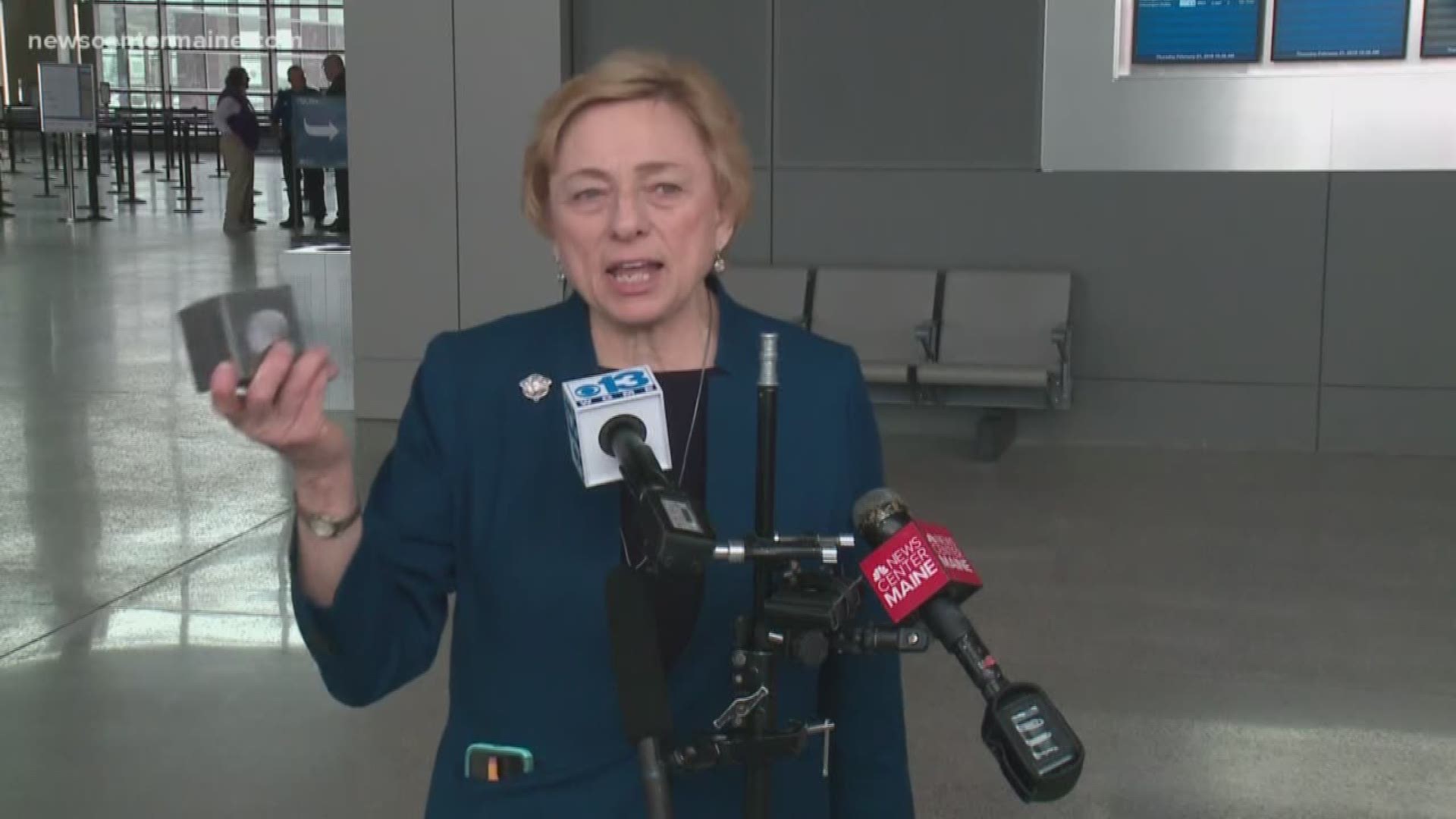PORTLAND, Maine — A big development today in that controversial Central Maine Power transmission line for western Maine -- Gov. Janet Mills has thrown her support behind the project, saying it will help lower electric rates and reduce carbon emissions that are contributing to climate change.
"We can’t say no to every prospect, to every project. We have to open the door," Mills told reporters Thursday morning, shortly before boarding a plane to Washington for the National Governor’s Conference.
She says the decision to support the transmission line, officially called the New England Clean Energy Connect, came after weeks of negotiations between CMP, the Governor’s energy office, several intervening parties, and the state’s Public Advocate.
Those negotiations resulted in an agreement, officially called a stipulation, that provides $258 million of incentives to Maine over the next forty years. For Mills, the biggest incentive is the prospect of reducing carbon emissions as a result of bringing 1,000 megawatts of hydroelectric power into New England.
She says a consultant hired by the PUC estimated the change will reduce carbon emissions by 3.6 million metric tons each year.
"3.6 million metric tons per year from this transmission line," Mills told reporters, "which will allow New England to base its energy on hydro-electric power, among the cleanest you can take."
The Natural Resources Council of Maine, which continues to oppose the project, argues the climate change benefits of the NECEC are not realistic. He called that the project’s "fundamental flaw".
"It has all these negatives on environment, scenic resources, wildlife, and renewable energy future and industry," said Dylan Voorhees of the NRCM. "All those negative impacts and it doesn’t have a benefit for our climate. The actual atmosphere, the climate itself, will not benefit from this transmission line."
Mills said she was also convinced to support the project because of the $258 million of incentives agreed to by CMP during the recent settlement negotiations. Many of those benefits would stretch out over as long as 40 years. For example, the settlement calls for a total of $190 million to reduce electric rates, including a fund targeted for low income households. The money would come in annual payments of roughly $3.5 million.
There is also money to buy heat pumps, expand broadband in western Maine, significantly expand electric car charging stations, and provide subsidies to help low income people buy electric cars.
Project opponents continue to have strong objections because of environmental damage, primarily from cresting the power line corridor in western Maine, running from the Quebec border to The Forks, where it would meet an existing transmission line. Mills said she hopes some of those concerns can be addressed during the next stage of the permitting process, which will be handled by the Department of Environmental Protection.
"I said all during the campaign I was skeptical. I said I had questions and concerns," said Mills. "I still have questions and concerns about environmental impact -- that’s to be dealt with down the road. But many of my concerns and questions have been addressed through these discussions the past few weeks."

